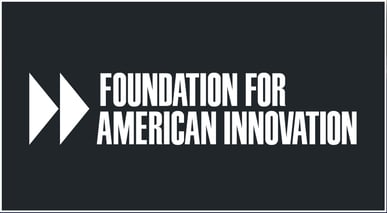As more states embrace robust parental choice in education, we face a hopeful new world of freedom and opportunity wherein parents can choose to educate their children as they best know how. Yet, as The Lynde and Harry Bradley Foundation’s Jason Crye pointed out at a recent panel discussion, hundreds of thousands of families interested in exercising their rights to choose the right school for their children don’t know where to start.
With entrepreneurs meeting the new market demand for a dizzying array of educational options, helping parents make the most of the opportunity is now a crucial front in the parental choice battle.
This will take different forms in different states. California, for example, isn’t known as a haven for parental choice in education—indeed its education sector is dominated by powerful teachers’ unions and their allies in state government. The results are telling: despite massive budgets, government schools in the state with the sixth largest economy in the world consistently rank at the bottom of national rankings in student performance. Private schools remain out of reach financially for most, but charter schools have launched in counties where parents have an upper hand in local politics.

Parent Union founder Cecilia Iglesias has emerged from school board battles as a community leader who fought for families with traditional values. Now a leading proponent of charter schools in California, especially with Latino families, Cecilia and her team focus heavily on helping families understand that tuition-free charter schools are a great option in districts where the standard schools are failing academically while undermining parents’ values. Her team knocks on doors, reaches out on social media, and hosts community events that have become so popular that even some of the better district schools have asked to attend.

Love Your School founder Jenny Clark is introducing parents to the possibilities now open to more than a million Arizona students in the wake of last years’ universal ESA victory. Her team of consultants helps parents navigate the many options available in a state where education entrepreneurs have been launching a wide variety of options for years. One of these—Phoenix Woodworking School (PWS)—illustrates the challenges and opportunities facing both entrepreneurs and parents.
Ken Zevenbergen launched PWS two years ago to provide a stand-alone “shop class” for families whose children didn’t have the option in school. His school qualifies for ESA funding, but he didn’t know how to get the word out, so his first few classes were small. Working with Love Your School, which provides no-fee consultation to parents, he now has forty-one students enrolled and 140 more on a waiting list. He is now looking for tradesmen to join him and offer more options to parents. With early successes like these, Clark is working to bring LYS’s model to other states.

At the Foundation for American Innovation (formerly Lincoln Network), Brandon Detweiler works with other tech founders to connect Silicon Valley with Capitol Hill. FAI has been growing because, as the 2021 Zuckerberg hearings showed, policymakers don’t get tech, and many in the culture of technological innovation don’t feel their concerns are understood by lawmakers. But Detweiler doesn’t just advocate, he brings his entrepreneurial skills to the table, developing Schoolahoop, an app that consolidates parental choice options for parents. By helping parents search for scholarships and connecting them with programs and schools, Schoolahoop has augmented its strategy from a national focus to a state-level focus. Primarily, this has meant partnering with parent advocates like Love Your School.
With data showing that parents are five times more likely to embrace parental choice in education if they have a friend who does, Detweiler believes we’re in the early stages of an explosion in adoption of parental choice. But he, Iglesias, and Clark agree that while good technology is essential to helping parents make the most of school options opening up, trust and personal relationships are what really make the difference in families choosing the education options that are right for their children.


